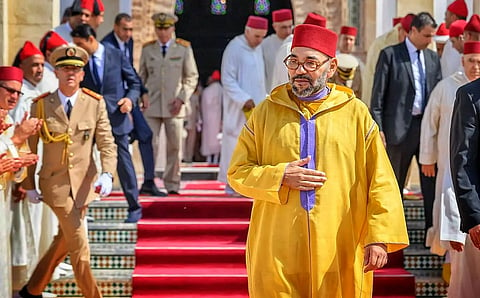Moroccan King Chairs Meet On The Revision of Family Code
Casablanca, December 24 (TNA) King Mohammed VI on Monday chaired at the Royal Palace in Casablanca, a working session on the revision of the Family Code. This session follows the submission by the Body in Charge of Revising the Family Code of a report to the King, marking the completion of its mission within the designated timeframe.
This report includes over 100 proposed amendments. It also follows the referral by the King, of some specific proposals concerning religious texts to the Supreme Council of Ulema, which has since provided a legal opinion.
It also comes after the King, made the necessary arbitrations on issues on which the Body issued more than one opinion, or where revisions required recourse to Sharia.
These Royal arbitrations have given priority to choices that are in line with the guidelines and objectives outlined in the Royal Letter addressed to the Head of Government, as well as those set by the norms governing the Body’s work, mainly the norm of “not prohibiting what is authorized, nor authorizing what is prohibited.”
During this session, Minister of Justice Abdellatif Ouahbi, as a member of the Body in Charge of Revising the Family Code, gave a presentation before the King on the Body’s approach and working methodology, in particular the listening and hearing sessions organized by the Body, as well as the most important proposals arising from them, which it included in its aforementioned report, in addition to the expected objectives of these proposals.
The Minister of Endowments and Islamic Affairs Ahmed Toufiq, as a member of the Supreme Council of Ulema, presented the conclusions of the Council's Opinion, which established the essential legal basis for some of the Body’s proposals, and took into account the principle of Maslaha (interest) to find Sharia-compliant solutions regarding other proposals.
This provided an opportunity to highlight the capacity of constructive Ijtihad in deducing Sharia rules, the middle ground and moderation of the Moroccan School of Fiqh, which draws its foundations from the Kingdom's religious constants.

